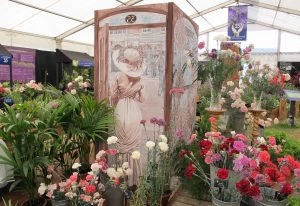Through a number of conservation projects, including the National Plant Collections and Threatened Plants Project, we are helping to safeguard our unique garden flora across Britain and Ireland.
 Plant Heritage, formerly known as the National Council for the Conservation of Plants and Gardens (NCCPG), was founded as a registered charity in 1978 to combine the talents of botanists, horticulturalists and conservationists with the dedication of keen amateur and professional gardeners,
Plant Heritage, formerly known as the National Council for the Conservation of Plants and Gardens (NCCPG), was founded as a registered charity in 1978 to combine the talents of botanists, horticulturalists and conservationists with the dedication of keen amateur and professional gardeners,
Through its membership and the National Collection Holders, Plant Heritage seeks to rediscover and reintroduce cultivated plants by encouraging their propagation and distribution so that they are grown as widely as possible.
Plant Heritage’s aims are to: encourage the propagation and conservation of cultivated plants in the British Isles; encourage and conduct research into cultivated plants, their origins, their historical and cultural importance and their environments; and encourage the education of the public in cultivated plant conservation.
 Historical
Historical
Garden plants are inextricably bound up with our cultural and social history; the plants collected by a valiant plant hunter, or bred by a staid country parson are as important to our history as our stately homes and art. Unlike grand houses and statues they are immensely vulnerable to all kinds of threat, and need constant work to conserve.
 Horticultural
Horticultural
The cottage garden, the allotment, the clipped formality of the stately home have been founded on ‘old-fashioned’ varieties such as old pinks, florists’ violas, tulips, Malmaison carnations, auriculas, lilacs and phlox. These plants and their cultivation are often very specialist and tied in with the places in which they used to be grown.
 Reference
Reference
There will always be a need for living plant reference libraries where all the plants in a particular genus or group can be seen together, compared and researched. As funding for botanic gardens and parks is under threat, the need to conserve these collections becomes more urgent. It is unlikely that a member of staff in an institution will be allowed sufficient time to become as expert in a single plant as a Collection Holder can.
